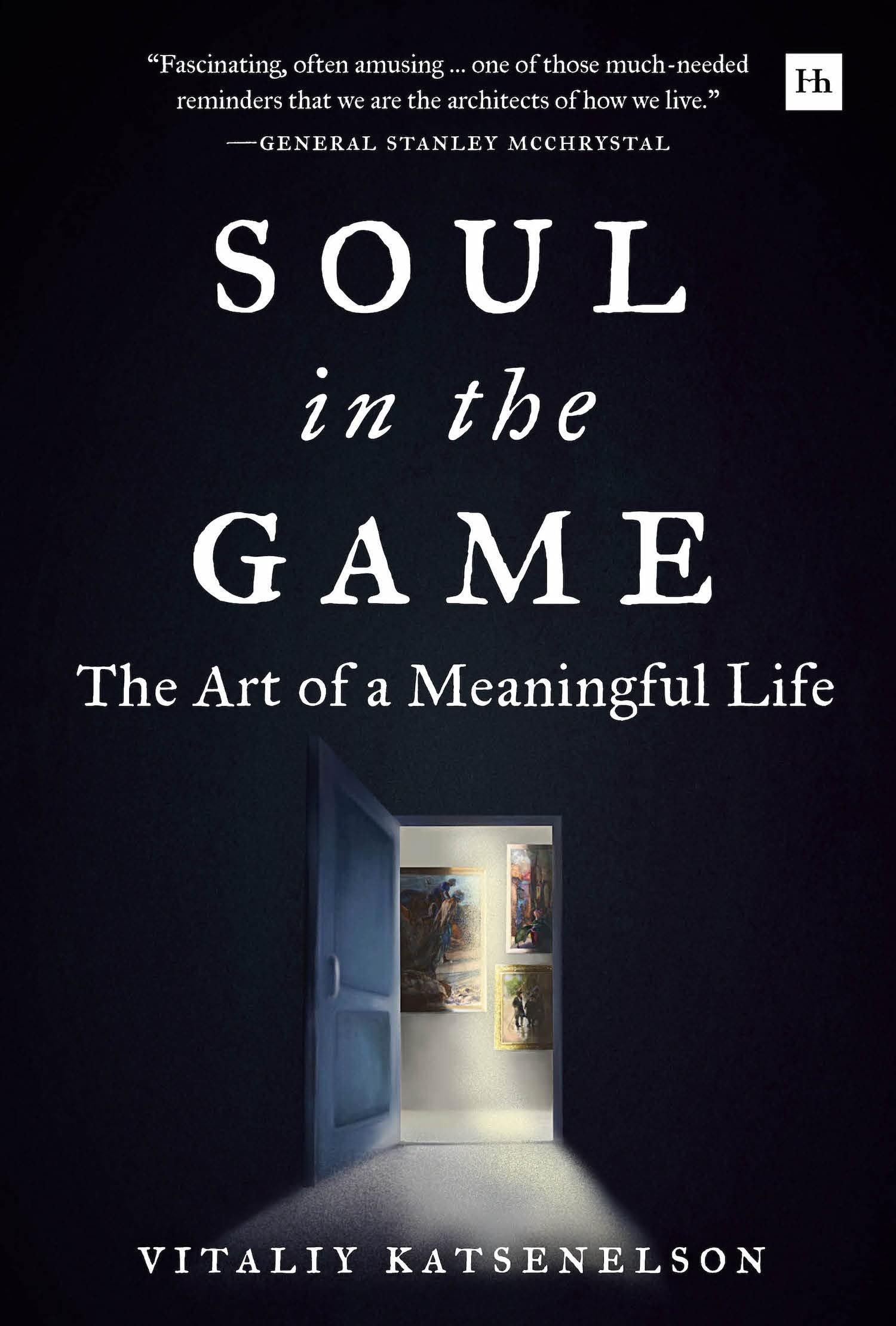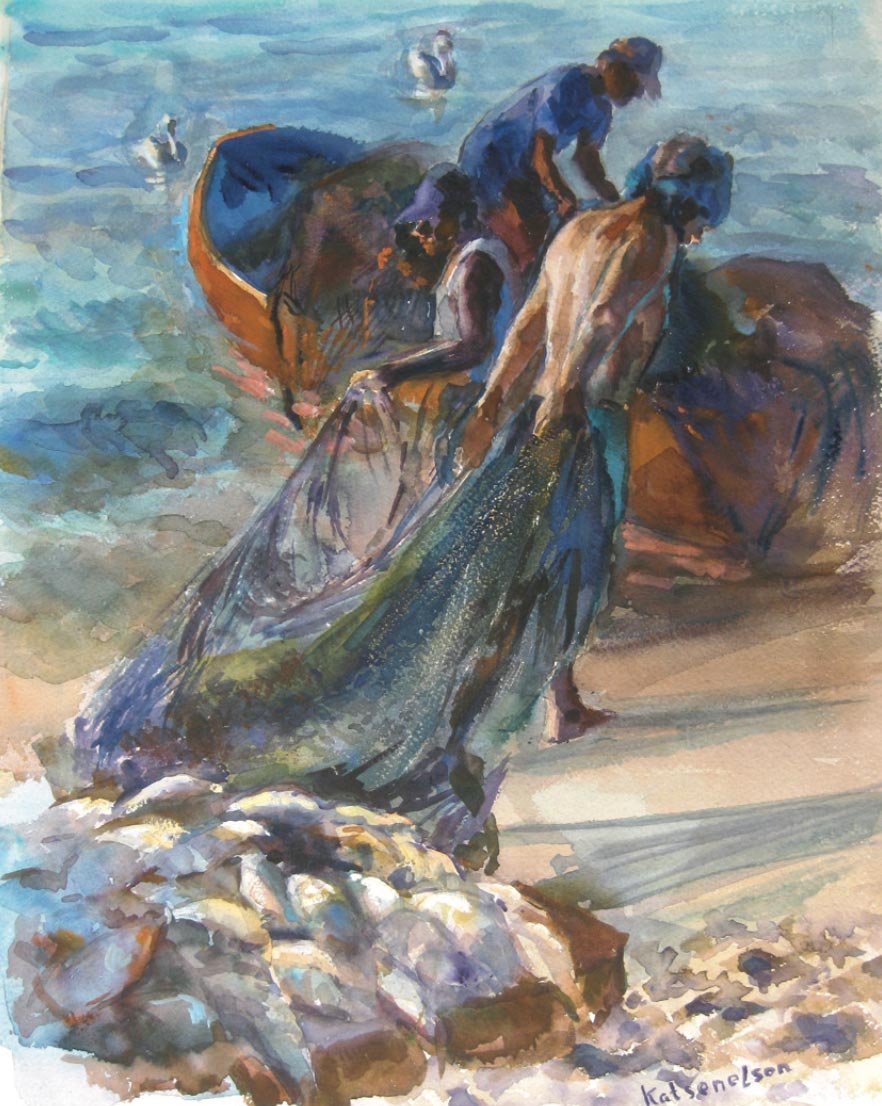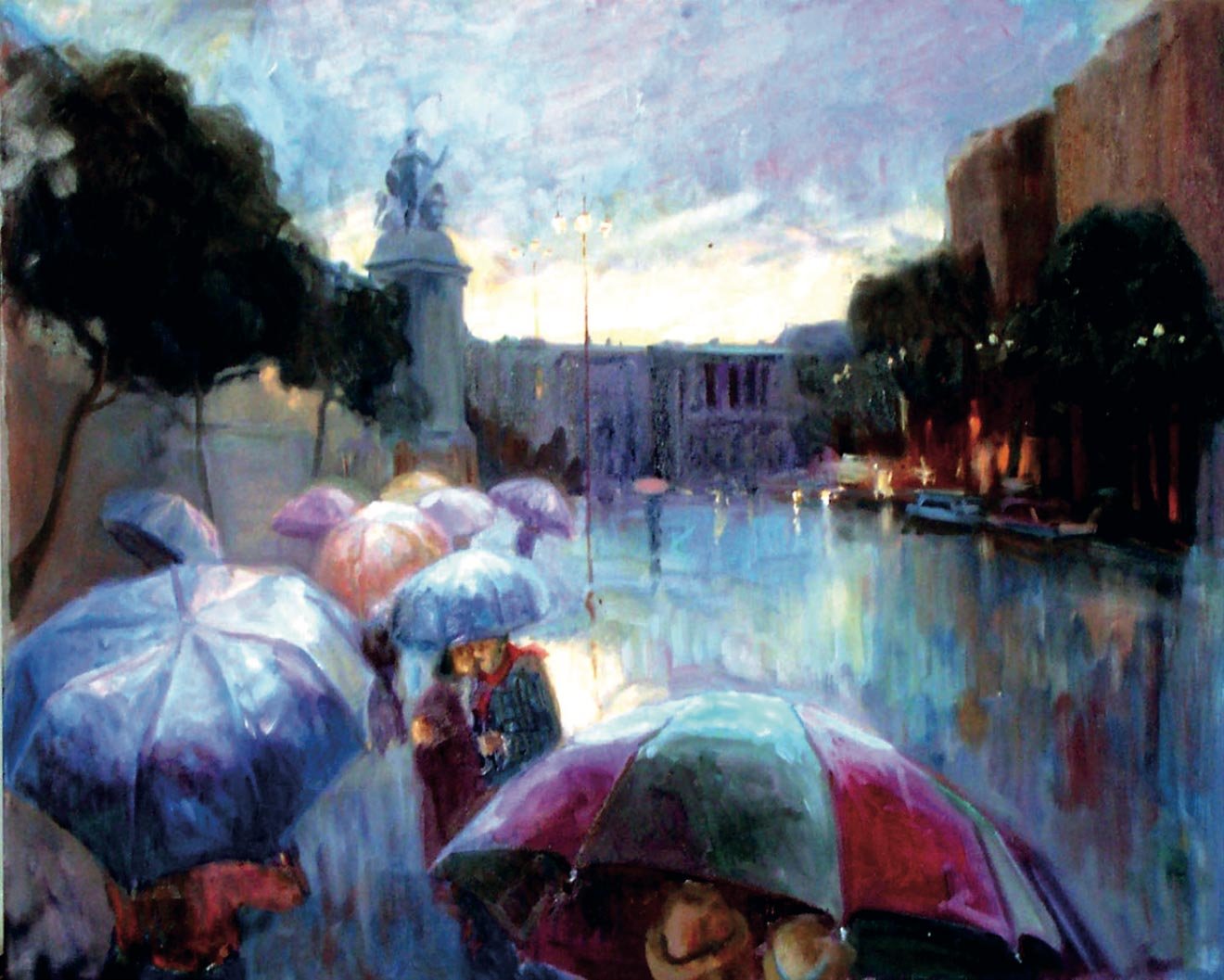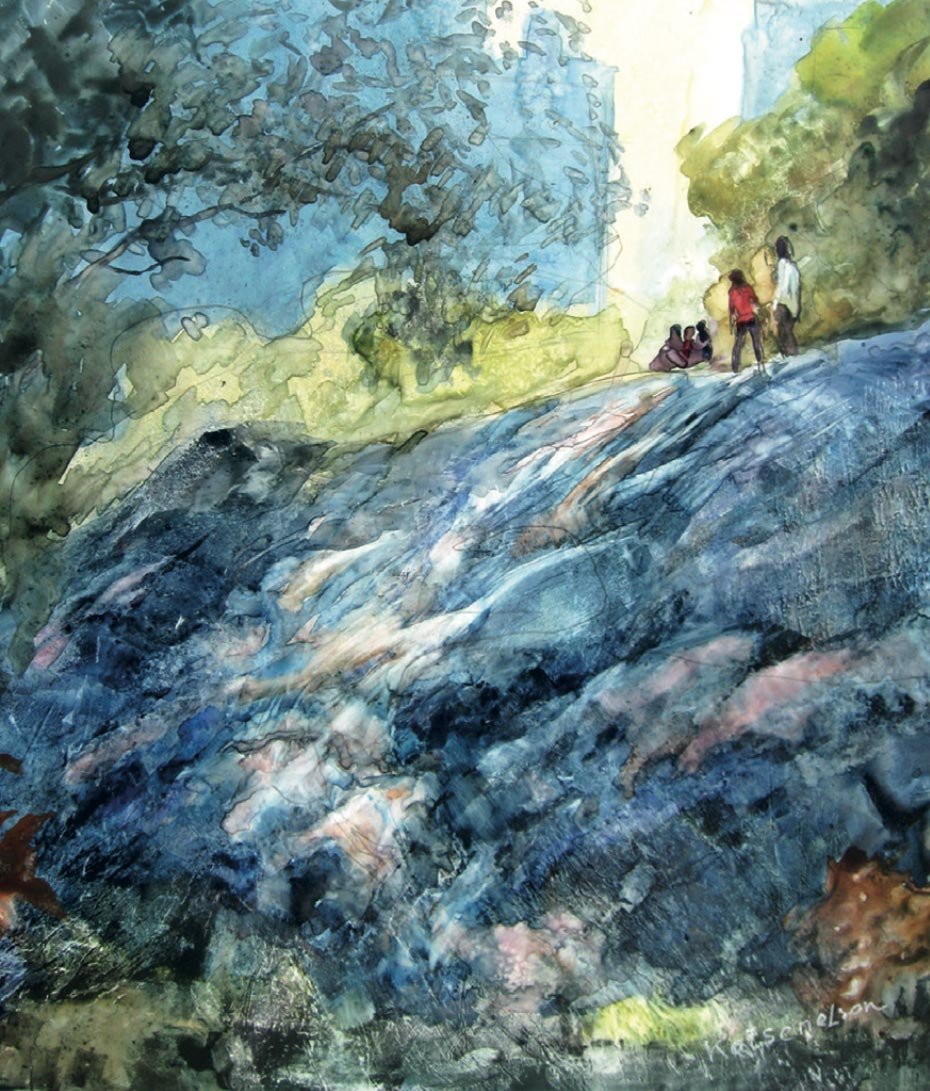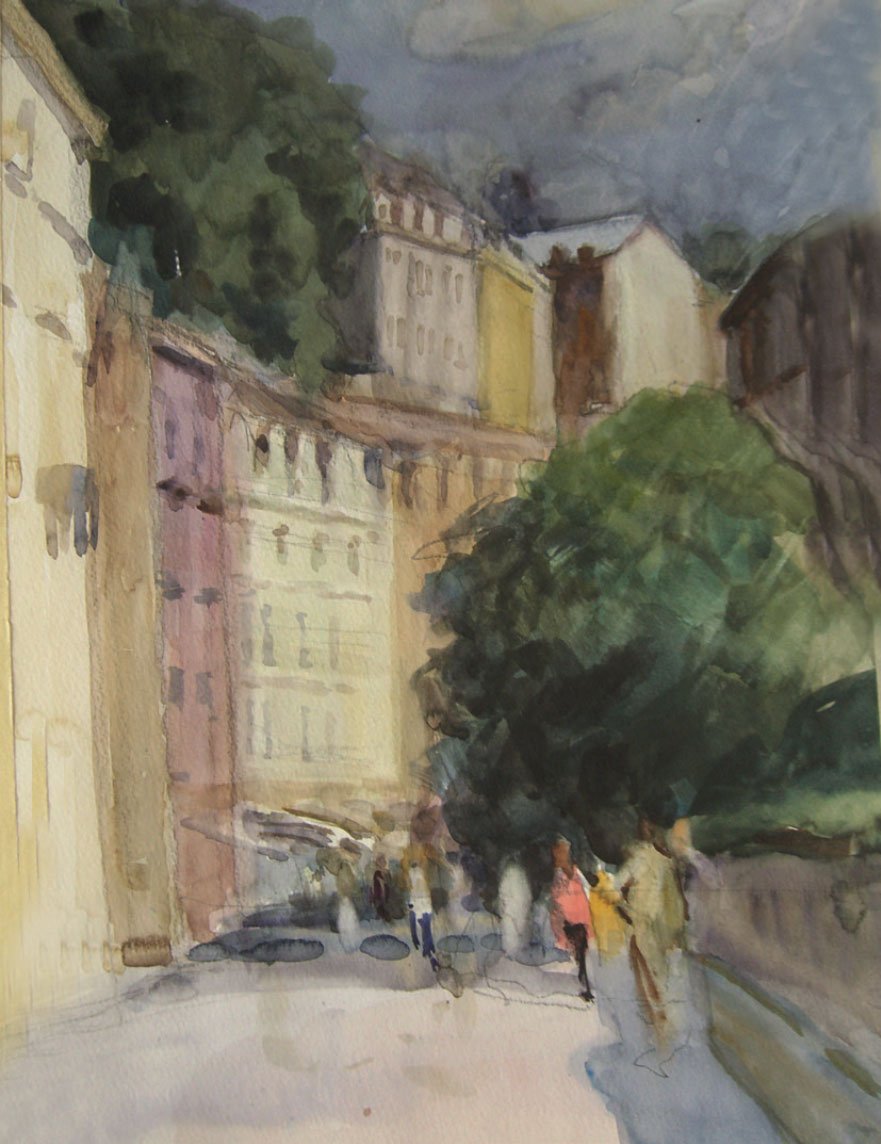Vitaliy Katsenelson was born in Murmansk, Russia and immigrated to the United States with his family in 1991. He is the author of Soul in the Game, The Art of a Meaningful Life. He is the CEO of Denver-based value investment firm IMA. Vitaliy has also written two books on investing. Forbes Magazine called him “The New Benjamin Graham.” He’s written for the Financial Times, Barron’s, Institutional Investor and Foreign Policy. Vitaliy lives in Denver with his wife and three children, where he loves to read, listen to classical music, play chess, and write about life, investing, and music.
THE CREATIVE PROCESS
As you reflect on your life, it's an unconventional path to becoming an investor. Tell us what it was like coming from Russia and arriving in America.
VITALIY KATSENELSON
So I was born in Murmansk, Russia. So just to picture it, if you look at the map of Russia, you look on the left and you go up and when you go up, keep going up. Once you pass the Arctic Circle, go up a little bit above that. That's where Murmansk is. It's a very important city strategically for Russia. It was especially important during World War II because of the Gulf Stream that it's the only port in Russia that does not freeze in the wintertime. That's how Americans sent supplies to Russia during World War II, and it's also a home for the Russian Northern Navy fleet. Basically, it's a commercial fishing town.
So up far north there's very little sunlight in the wintertime. You wake up in the morning, and it's still dark outside. And what's interesting about it is that I remember I grew up in a Soviet Russia, not just Russia, but Soviet Russia. So there was very little capitalism then. So no free market. There is no vegetation in Murmansk, very little sunlight. When I lived in Russia, I thought that was a normal life. That's how things are supposed to be, but what's interesting about this is that I'm thankful that I went through that because that makes me appreciate what I have a lot more. I see the contrast between what I had as a child and what I have today.
*
I think there are four modes of communicating: preacher, prosecutor, politician, and scientist. So those three Ps are very important modes, but if you spend all your time in these modes, you will learn very little because all of them are kind of outward-looking modes. You're trying to convince others, and you don't learn very much when you're in those modes. Now, I would argue that most of us need to spend a good chunk of our time in a scientist mode. If you are in a scientist mode, then you are doing what Seneca said, "time discovers truth."
So in the scientist mode, everything you look at is a hypothesis, and then all you're trying to do is just trying to figure out if your hypothesis is right or wrong. And therefore in the debate, you're trying to understand the other person's side, not necessarily be in prosecutor mode to convince the person to change his or her mind.
We want to be very careful that ideas don't become our identity because once they do, we can't change it. In fact, I would argue, we have to be very mindful and evaluate our identity because a lot of times our identity is formed through completely random experiences.
I look at Stoicism as this operating system that is very accessible, that helps us to enhance our life, enhance positives in life, and diminish negatives in our life. So what happens to us when we are born: we are given this hardware and software. The software is kind of our operating system, and the operating system is fairly blank at first, and then our parents help us to write this operating system, and then our friends influence this operating system. Then life, things that happen to you, contribute to your operating system. And how you react to things is really driven by all these factors that were somewhat random in the beginning. To me, Stoicism gives me this guide or operating system – how to go through life and minimize pain in your life, negative emotions, which also helps you to maximize positive emotions.
*
Creativity is one of the most important themes that you can see throughout the book. I find meditation is a very good source of mindfulness, and what meditation teaches you is to observe your own thoughts. A lot of times we suffer through self-talk, and we are not even aware of this. A lot of times this self-talk actually amplifies our pain, because in reality, the pain should not last very long. Creative pain should not last very long, but it's the self-talk that amplifies the amount of it, and the length of it. Now, meditation allows you to look at your self-talk and identify that, and by labeling and identifying it, you lessen it and reduce the duration. And that is actually incredibly important. Teach yourself to be mindful through meditation.
This interview was conducted by Mia Funk and Maureen Nole with the participation of collaborating universities and students. Associate Interviews Producer on this podcast was Maureen Nole. Digital Media Coordinators are Jacob A. Preisler and Megan Hegenbarth.
Mia Funk is an artist, interviewer and founder of The Creative Process & One Planet Podcast (Conversations about Climate Change & Environmental Solutions).
Books & Writers channel
All Arts, Culture & Society episodes




